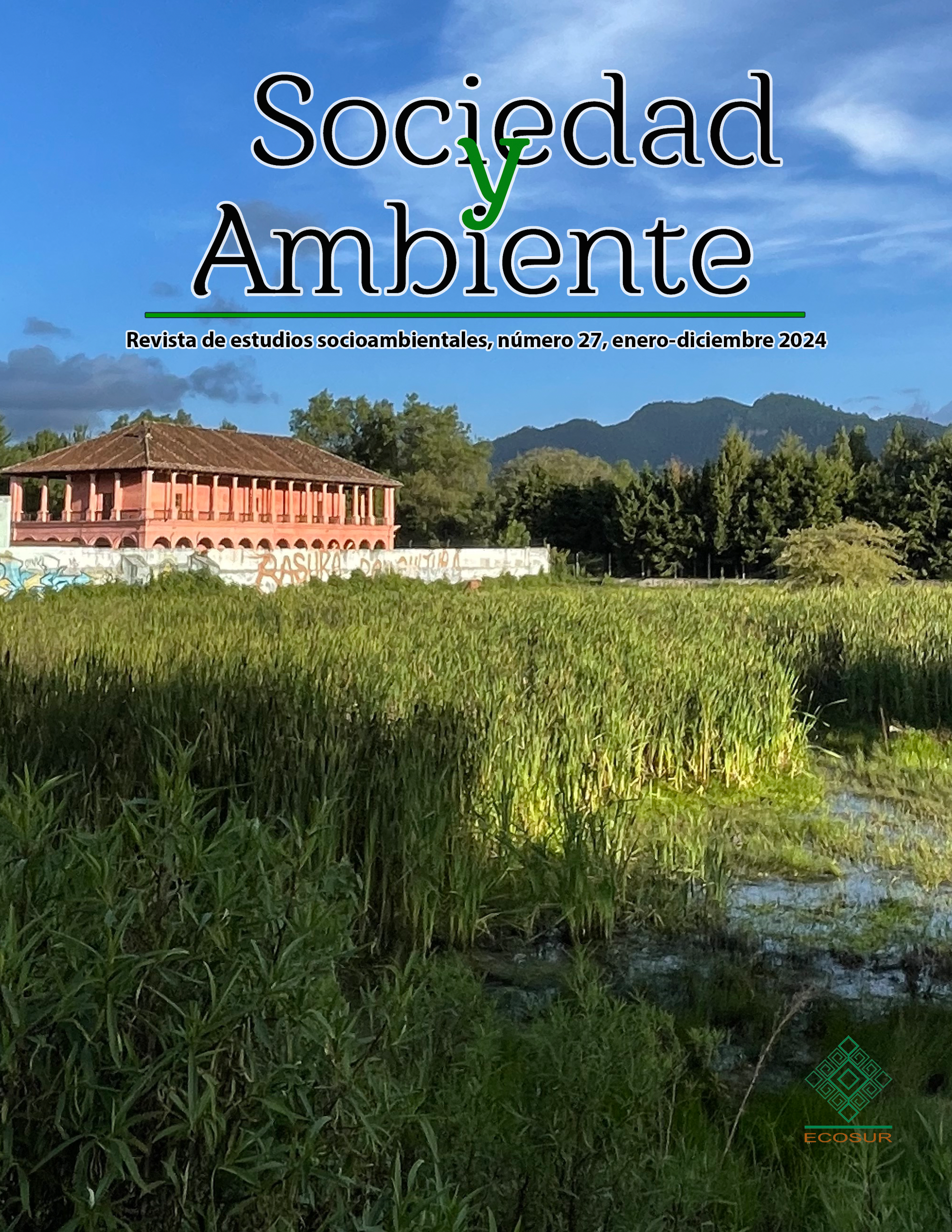Abstract
In Zinacantán, water management is influenced by community practices, local customs, and view of the world. The incorporation of commodification through floriculture in this indigenous community reflects a change toward water management as a common good. This study analyzed governance in community water management, identified the actors, their roles and responsibilities, the sources of supply, the problems they face, the norms of provision, and the level of influence according to the type of actor, to understand its structure, organizational, and current operation. Data were collected through 17 semi-structured interviews with key participants using the snowball technique. The findings indicate that water governance in Zinacantán involves actors such as the water board, domestic users, flower growers, and water distributors or “piperos”. The water board, an institution of members elected in the community assembly, has assumed new responsibilities that were not observed in the traditional management of this common resource. This points out a transformation in the organizational structure toward the coexistence of common and economic interests. However, tensions around water use persist, reflecting conflicts between community needs and economic activities.

This work is licensed under a Creative Commons Attribution-NonCommercial-ShareAlike 4.0 International License.
Copyright (c) 2024 The Authors


